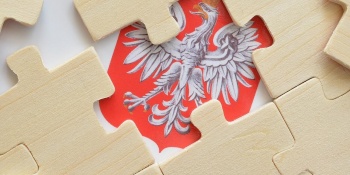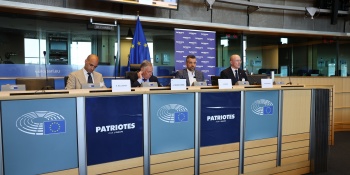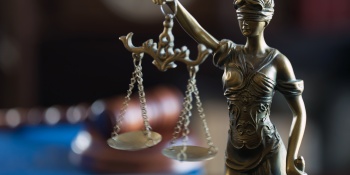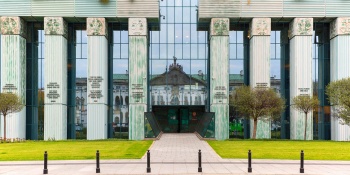Published: 19.10.2022

· The European Union is working on a draft regulation of the European Parliament and of the Council "establishing rules to prevent and combat child sexual abuse", prepared by the European Commission.
· If the regulation came into force, all content posted on the internet and other communication platforms would be reviewed and evaluated.
· Dozens of human rights organizations, associations of journalists, IT professionals, public institutions, including the European Data Protection Board (EDPB) and the European Data Protection Supervisor (EDPS), and industry organizations indicate a serious threat to fundamental human rights and civil liberties resulting from the project.
· The Ordo Iuris Institute prepared an opinion on the draft Regulation of the European Parliament and of the Council.
According to the Commission, the fight against the phenomenon of sexual violence online requires the adoption of appropriate, uniform EU regulations. The intention to regulate the protection against sexual abuse of children, in the opinion of the draftsperson, results from the cross-border nature of this phenomenon and excessive diversity of regulations in the laws of the Member States relating to this matter. As a result, they are not able to provide full protection against online sexual violence.
However, while pointing to the legitimate aim of combating sexual violence against children, the Commission proposes disproportionate solutions that raise very serious doubts. The draft regulation provides for the decryption of all content posted on the Internet, including private correspondence between family members and friends, messages sent between employees and commercial correspondence between entrepreneurs. Providers of 'relevant information society services' such as hosting, interpersonal communications, internet access and app stores would be required, inter alia, to' identify, analyze and assess the risk of the use of the service for the purpose of online child sexual abuse in relation to to each of the services they offer”.
This means that any content posted on the internet and other communication platforms would be verified and evaluated. This would apply not only to publicly available content, but also to private correspondence between family members and friends as well as messages sent between entrepreneurs, constituting a professional or business secret.
Service providers would draw up risk assessment reports and send them to the coordinating bodies, which would pass them on to the upcoming EU Center for the Prevention and Combating of Child Sexual Abuse. The preparation of such reports requires constant analysis of all content sent via digital transmitters.
More than one hundred organizations and experts defending human rights called on the European Commission to withdraw the project, pointing out, inter alia, that:
- whistle-blowers and sources wishing to anonymously share stories of government and public administration corruption will no longer be able to trust online communication services;
- secure messaging services (such as Signal) would be forced to stop offering their services, leaving users without any alternative solutions. This would put anyone who relies on such services at risk: lawyers, journalists, human rights defenders, NGO employees (including those who help victims), governments and more;
- by undermining the end-to-end encryption that journalists rely on to communicate securely with sources, the protection of both will be severely compromised, with a devastating effect on media freedom;
- the adoption of the project and the implementation of the processes provided for in it will open the way for governments around the world to introduce further scanning criteria, including in order to fight political opposition or detect any behavior that the government wishes to suppress;
- these threats pose a particular risk to disadvantaged, persecuted and marginalized groups around the world.
Dozens of human rights organizations, associations of journalists, IT specialists, public institutions (including the European Data Protection Board (EDPB) and the European Data Protection Supervisor - EDPS) and industry organizations indicate a serious threat to fundamental human rights and civil liberties of such such as the right to privacy, freedom of expression, professional secret, business secret or correspondence secret. At the same time, they emphasize the weakening of the security of using digital services and personal data as a result of the adoption of the draft.
In addition, the draft submitted by the European Commission does not address the causes of the phenomenon of sexual abuse of children, in particular, it does not try to counteract the progressive sexualization of children with the participation of, inter alia, the entertainment or fashion industry. It also does not apply to access to pornography on the Internet by children, although such universal, unrestricted access seems to be not unrelated to the occurrence of child sexual abuse practices.
“Child sexual abuse is the category of crime that calls for the most severe condemnation and punishment, and it is imperative to take action to prevent it. The noble goal should not, however, legitimize the introduction of surveillance solutions that undermine the most important civil rights and freedoms as well as the foundations of a democratic order "- notes attorney-at-law. Rafał Dorosiński, member of the Management Board of the Ordo Iuris Institute.
Work is currently underway on Poland's position to the draft regulation. When it is completed, it will be considered by the Parliamentary Committee for the European Union.

16.06.2025
Shortly after the end of the second round of Polish presidential elections, which took place on 1 June 2025, the International Observation Mission of the Organisation for Security and Cooperation in Europe (OSCE) issued a Statement of Preliminary Findings and Conclusions concerning the elections.

Wednesday's presentation in Brussels of the European Union reform plan developed by Poland’s Ordo Iuris Institute and Hungary’s Mathias Corvinus Collegium garnered significant interest. Nearly a hundred MEPs and their staff from many countries came to the presentation of this proposal.

10.06.2025
According to the authors of the report published today, titled “Violations of the Principles of a Democratic State of Law and the Rule of Law by the Government Donald Tusk after December 13, 2023,” the authorities, under the leadership of Polish PM Donal

09.06.2025
Presidential elections, which have just taken place in Poland, were won by the candidate supported by the opposition. According to the law, the validity of the elections should be decided by the Extraordinary Review and Public Affairs Chamber of the Supreme Court. However, the government is questioning the competence of this chamber, which could be interpreted as an attempt to obstruct the transfer of power to the newly elected president.